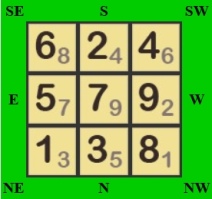Covid-19 has accelerated many trends that were already apparent in global economics and politics: automation, supply chain recalibration, US-China tensions, low interest rates and a rollback in civil liberties. One I would like to highlight this week is international geopolitical changes; in particular, the growing clout and growing challenges of China. China is a major economic power, and for the clear majority of the world it is one of the top trading partners. China has managed to suppress the pandemic since its emergence, in stark contrast to the US, which has accelerated the narrowing of the gap between the two countries in credibility amongst international partners. In turn, this has put China in a stronger geopolitical position.
However, not all accelerating trends have been in China's favour. For many years, traditional US allies such as Europe, Japan and Australia have tried to balance a security alliance with the US alongside economic dependency on China. This holding pattern never seemed sustainable, despite the protestations of trade ministers, and in recent months we have seen these jurisdictions (along with others such as India and Canada) come down more firmly in the US camp, even if it means a deteriorating relationship with China. China's bombastic international diplomacy in response to Covid-19 has gone down particularly badly in Australia, while the EU is losing patience with unequal treatment of its firms. If Joe Biden wins the US presidential election, as we currently expect, he is likely to be more effective at co-ordinating these allies in a united front. That will make things harder for China, which is learning that greater international power also comes with greater international problems.
Below is my google search result on Covid-19 and Geopolitics
https://www.csis.org/analysis/world-order-after-covid-19
https://podcasts.apple.com/uz/podcast/how-covid-19-is-accelerating-geopolitics-shifts-interview/id593535863?i=1000472361484?i=1000472361484
https://www.aspistrategist.org.au/the-geopolitics-of-the-pandemic-year/
https://www.theatlantic.com/international/archive/2020/05/coronavirus-pandemic-second-wave-geopolitics-instability/611668/
https://www.mckinsey.com/featured-insights/asia-pacific/fast-forward-china-how-covid-19-is-accelerating-five-key-trends-shaping-the-chinese-economy
https://www.foreignaffairs.com/articles/united-states/2020-04-07/pandemic-will-accelerate-history-rather-reshape-it
https://www.undispatch.com/the-geopolitics-of-covid-19/
https://www.blackrock.com/corporate/literature/market-commentary/weekly-investment-commentary-en-us-20200824-strategic-asset-allocations-post-covid.pdf
https://www.technologyreview.com/2020/08/19/1006349/covid-american-decline-geopolitics-coronavirus/
http://hillsdalecollegian.com/2020/09/viral-acceleration-geopolitics-after-covid-19/
https://www.rics.org/en-hk/wbef/megatrends/markets-geopolitics/covid-19-and-the-changing-geopolitical-landscape/
The mundane feng shui is no fun in Oct
Below is a Feng Shui Flying Stars presentation
The Big Prints are 2020-year configurations and Small Prints are Oct-month configurations

Source-https://www.fengshuimall.com/flying-star-2020-charts
Yearly illness 2 is in the South and Monthly disaster 5 is in the North
Note the central zone admits Year 7 and month 9 combination which can accelerate
the detrimental effects of illness 2 and disaster 5
Note the North admits Year 3 and Month 5. 3 means conflicts
Note the South admits Year 2 and Month 4, 4 means literacy, diplomacy and organization
3
Will there be any pitfalls in IR (2,4) that may lead to conflicts (3,5)?
On top of all these, we also have year 3 jinx年三煞 in the South and monthly 3 jinx in the North
月三煞
U Tuber-Picture Healer has been doing videos explaining the basic principles of Feng Shui in English
They can be a good reference. You can also find her stuffs on pinterest
沒有留言:
張貼留言